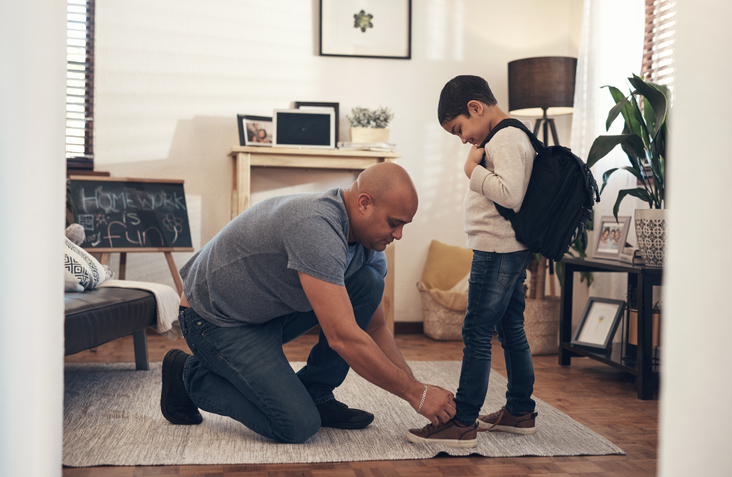The benefits of routine for children are significant. A routine can create a sense of familiarity, which in turn can allow a child to feel more confident at home, in childcare settings, and in school. Consistency in a schedule can be especially important during more challenging times in a child’s life, but it also offers a sense of security even during more ordinary days.
According to the U.S. Department of Health and Human Services (HHS), when a child knows what is happening now and what should come next, they can focus on an activity and more fully engage in learning. They can develop quality relationships with the people around them; handle change more effectively, and become increasingly more independent.
Elements of a Good Routine
PBS.org points out that routines help to ensure a child’s health and safety and to guide them towards responsible behaviors. Examples include washing hands before eating and looking both ways before crossing a street.
Then, when children understand social routines—such as how to greet other people and share toys, as two examples—they can learn how to have positive interactions with others. Routines can also help a child transition from one activity to another: a relaxing bath, for example, can help before bedtime.
What is a ‘Good’ Routine for Your Child?
So, what routine is considered ‘good’? This can vary by family, depending upon their needs and schedules. An Australian site notes that a quality routine is well-planned, regular, and predictable. When children are young, parents will largely plan the routines, but as they become older, they can start to contribute to the planning aspect.
Routines, by their very nature, are regular and predictable. That said, the best routines often have a bit of flexibility built into them. Otherwise, they can become frustrating rather than serve the ideal needs of the family.
Understood.org offers tips on quality routines. To be useful, parents need to be realistic about what can get done in a certain amount of time and list priorities well. If doing homework is a top priority before dinner, but it’s becoming stressful for a child to complete it on time—consider whether there should be a time before dinner and a time after dinner for homework, assuming that the second time slot is needed.
Clearly explain routines and allow your child time to ask questions. Also, be specific. Many times, it can help to put a to-do list in writing if your child is old enough to follow written guidelines. Encourage your children as they learn new routines and praise their efforts.
Finally, here are tips from VeryWellFamily.com. If you’re introducing a new routine, take it step-by-step. Some children may adapt well if you have photos of what needs to be done and in what order. For example, there could be an image of the child packing lunch and a backpack before brushing their teeth at night.
When you’re going to deviate from the routine—perhaps staying up a bit later one night for a special event—you should explain to your child why you’re not sticking to the normal routine. Explain that this is a one-time occurrence—and then you’ll return to the family’s routine. Then, enjoy the fun!
Horizon Education Centers Create Routines
Establishing a routine for children at Horizon Education Centers is part of our curriculum. If you'd like to learn more about our programs, contact us today.









